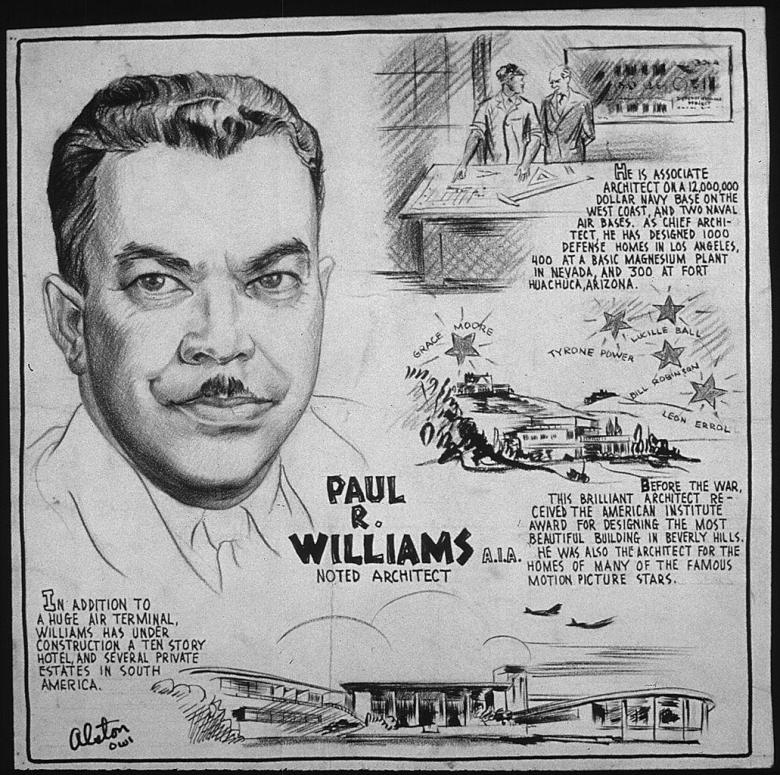Paul R. Williams Archive to USC and Getty
Image: U.S. National Archives and Records Administration
The University of Southern California School of Architecture and Getty Research Institute have announced the joint acquisition of the archive of architect Paul Revere Williams, "the most significant African American architect of the 20th century."
Although Paul R. Williams (1894–1980) was not recognized with the AIA Gold Medal in his lifetime, he was given the highest honor from the American Institute of Architects posthumously, in 2017. Since then more attention has been directed toward Williams and his buildings, such as with the documentary film, Hollywood's Architect, and now the news of his sizable archive going to two Southern California institutions.
Born in Los Angeles in 1894, Williams graduated from the USC School of Architecture and in 1921 became the first registered African American architect west of the Mississippi. Williams had a portfolio of nearly 3,000 buildings across five decades, with most of the realized buildings located in Southern California. Numerous houses for such Hollywood stars as Lucille Ball and Desi Arnaz, Lon Chaney, and Frank Sinatra led Williams to be called "the architect to the stars."
Karen Elyse Hudson has maintained her grandfather's archive and written numerous books devoted to him, including The Will and the Way: Paul R. Williams, Architect and Paul R. Williams: Classic Hollywood Style. A fire during the LA riots in 1992 destroyed many of Williams' office records, but the latest news reveals that his drawings, stored elsewhere, remained intact. Per a press release, the archive going to USC and the Getty is large: approximately 35,000 plans, 10,000 original drawings, blueprints and project diazotypes, hand-colored renderings, vintage photographs, correspondence, and other materials.
At USC, the Paul Williams Archive Initiative will be a central feature of the forthcoming USC Center for Architecture + City Design, which aims to link "archival work on the design of cities with scholars and designers working on contemporary issues that engage architecture, conservation urbanism and social practice." At the Getty Research Institute the archive will be a cornerstone of its African American Art History Initiative (AAAHI), which launched in 2018. While USC and the Getty are co-owners of the archive, it will be housed at Getty. The materials, which are described as "in excellent condition," will be processed, conserved, and eventually digitized, making them widely accessible to scholars.
